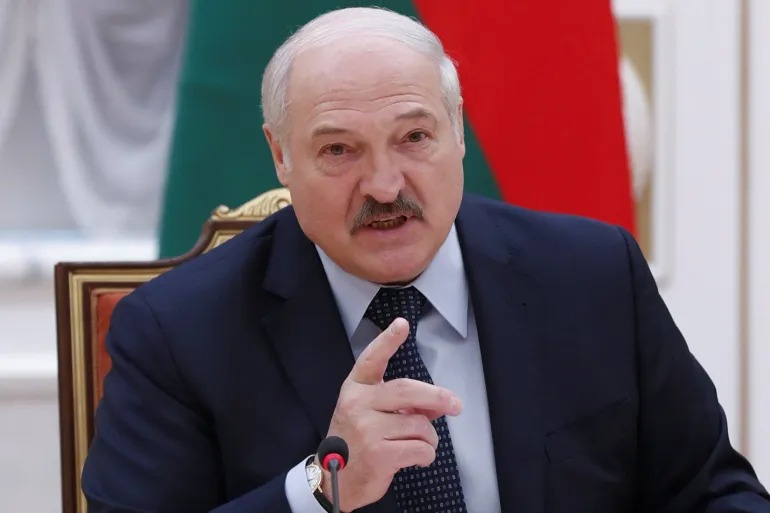Belarusian President Alexander Lukashenko has stirred the headlines once again, revealing that he cautioned Yevgeny Prigozhin and Dmitry Utkin, the heads of Russia’s Wagner mercenary group, with a stern warning: “Lads – you watch out.” As speculation swirls around the plane crash that seemingly claimed the lives of these two Wagner leaders, Lukashenko’s revelations have added a new layer of intrigue to the story.
Lukashenko’s Stern Message to Prigozhin and Utkin
Lukashenko, the pivotal figure who facilitated the safe retreat of Wagner fighters to Belarus following their thwarted uprising in June, disclosed that he had personally advised Yevgeny Prigozhin and Dmitry Utkin about potential threats to their lives. This revelation comes in the wake of Prigozhin’s suspected demise in a plane crash in Russia. Lukashenko recounted how he had warned Prigozhin during the rebellion itself, cautioning that he risked his life if he continued his march towards Moscow. The response he received from Prigozhin was brazen: “‘To hell with it – I will die.'”
Moreover, Lukashenko recounted a face-to-face encounter with the Wagner chiefs, during which he had sternly cautioned both Prigozhin and Utkin, reiterating his message: “Lads – you watch out.” Although the exact timing of these interactions remains unclear, Belarusian state news agency BelTA reported these accounts, lending an aura of intrigue to Lukashenko’s relationship with the Wagner leaders.
Lukashenko: Wagner Fighters to Stay in Belarus
In a bold proclamation, Lukashenko asserted that the Wagner fighters would continue to reside within Belarusian borders. He confidently stated, “Wagner lived, Wagner is living, and Wagner will live in Belarus. As long as we need this unit, they will live and work with us.” This stance raises questions about the strategic importance of Wagner within the context of Belarusian-Russian relations and Lukashenko’s geopolitical maneuvers.
Analysts Weigh In on Lukashenko’s Motives
Analysts from the Washington, DC-based Institute for the Study of War (ISW) have provided insights into Lukashenko’s statements. According to the ISW, Lukashenko’s declarations regarding Prigozhin and the resolution of the Wagner rebellion serve to bolster his image domestically. Lukashenko, amidst Russia’s de facto control over Belarus, aims to project himself as an independent leader, capable of making high-stake security decisions without Russian interference.
The ISW further highlighted that Lukashenko’s portrayal of Putin’s innocence in the deaths of the Wagner chiefs contributes to his image of maintaining diplomatic autonomy. The institute suggested that these statements could be aimed at emphasizing Lukashenko’s successful negotiation skills while underscoring the initial agreement that led to Wagner’s presence in Belarus.
Lukashenko’s recent revelations serve as a reminder that behind the scenes, power plays and diplomatic maneuvering can be as intriguing as they are unpredictable.















